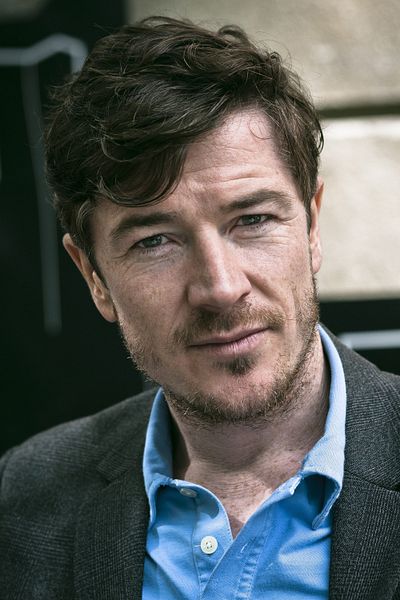Joe, a celebrated author, (Barry Ward) and his wife, Kate, a visual artist (Anna Bederke) have returned from London to his family farm and have embedded themselves with the local rural community and its cast of characters (Lalor Roddy, Brendan Conroy, Phillip Dolan). Through the course of a year, Joe and Kate witness the comings and goings of life from their farm, from old friends returning from abroad to changes in their own lives and careers...
Like much of John McGahern's work, plot is always a secondary consideration to theme, atmosphere, and the inner lives of the characters that occupy his stories. In 'That They May Face the Rising Sun', the stakes may be low and the pacing may be considered, but there is such richness and beauty in every scene. There's so much said in a glance, a gentle nod, or a faraway moment that says far more than any one line of dialogue could possibly reveal. Moreover, 'That They May Face the Rising Sun' speaks of how the silence and the peace found are as valuable and rare as anything in this world.
Barry Ward and Anna Bederke are essentially our windows into the world surrounding their farm, all of it caught in the glimmer and light of summer and with glorious colour. Bederke's character remarks on this from the warmth of their kitchen, and each time a new face arrives down the laneway, there's another colour and shade introduced unlike any other. The gallery of characters that arrive to the house is familiar; every rural town in Ireland has them, and each of them sparkle and shine in their own unique way. Sean McGinley, in one of his most vulnerable and heartfelt roles in some time, plays a returning brother to Lalor Roddy. Having left the village many years ago to work in England, their reunion plays out at first joyous and full of childlike glee but soon gives way to aged bitterness and the resentments that often occur between those who chose to leave and those who remained.
As with many works adapted from Irish authors, 'That They May Face the Rising Sun' comes to the subject of emigration and rural life with a real sensitivity. Barry Ward and Anna Bederke's characters find themselves at a crossroads, caught between the push and the pull of their lives. As Lalor Roddy's character remarks, their presence in Ireland is at odds with the '70s and finds them "coming home against the tide". Yet, for much of the runtime, Pat Collins and cinematographer Richard Kendrick make it absolutely impossible to think of being anywhere else. From the mighty sun rising over the lake in the opening scene to a warm supper in their kitchen spent in good conversation, 'That They May Face the Rising Sun' delights in the beauty and the mundane in equal measure.
Many Irish movies of late that are centered around the rural experience speak to the deep isolation and the forgotten ones left behind, such as 'Lakelands', 'Ballywalter' and 'Foscadh'. Yet in 'That They May Face the Rising Sun', we see how the peace and beauty of rural life is just as easily found. They're just understated and sometimes overlooked, but here, they are made lucid and given space to seize our imagination and hearts.




















































































